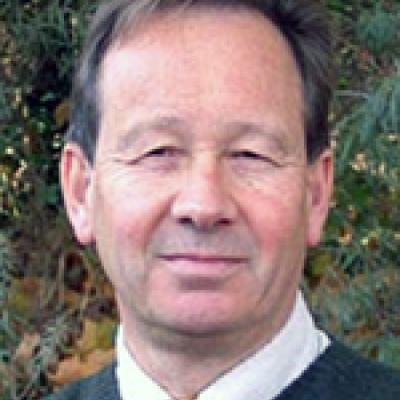Professor Paul Whitehead
MSc Teaching Associate
Professor Emeritus (Reading University) and Fellow of St Peter's College, Oxford
Director of the NERC Macronutrients Cycles Programme
Member of the Oxford Water Network
MSc Teaching Associate
Professor Emeritus (Reading University) and Fellow of St Peter's College, Oxford
Director of the NERC Macronutrients Cycles Programme
Member of the Oxford Water Network
Academic Profile
Paul Whitehead is Professor Emeritus (Reading University), a Fellow of St Peter's College, and Director of the NERC Macronutrients Cycles Programme. He has a PhD in Dynamic Analysis of Water Resource Systems (Cambridge) and an MSc in Control and Systems Theory (Manchester). Prior to joining the School of Geography and the Environment in 2008, Paul worked at the University of Reading as Professor and Director of the Aquatic Environments Research Centre. His research interests have focused on dynamic behaviour of river, lakes, wetlands and catchments and the interactions between hydrology, water quality and ecology. He has developed the INCA suite of dynamic models which have been applied widely across the world in many countries and in all continents. His research has been funded by the UK Government (DEFRA, DTI, DFID), The UK Environment Agency, English Nature, NERC, EPSRC, ESRC, BBSRC, the EU in 5 framework research programmes from 1982 to the present, Water companies and other industrial partners. He also contributes to the MSc in Water Science, Policy and Management.
Professor Whitehead has served on several senior NERC committees such as the Thematic Programme Planning committees for the River Ecology Programme (NERC £8 million), Pollution Pathways Programme (NERC £8million), Land Use Research Programme (NERC £12 million), Joint NERC/AFRC Agricultural Pollution Programme (£9 million), NERC LOIS Programme (£36 million) and Environmental Diagnostics (NERC £6million). He has also been an environmental research advisor to the EU, European Governments and UNESCO. He has also worked in Nepal, Thailand, India, China, Taiwan, Brazil, Australia and the USA. He has published widely with over 90 papers in the refereed literature as well as being guest speaker at a wide range of conferences and meetings.
Current Research
Paul's research is focused on the interplay between environmental management of major problems such as climate change and pollution control and the development and application of new mathematical techniques for modelling environmental systems in the past, the present and into the future.
Water Quality and Ecosystems Modeling
Predicting the behaviour of water quality and ecosystems in rivers, lakes and wetlands is a crucial element of modern environmental management. Water resources and ecosystem health are key issues for EU and Government Policy especially to address Directives such as the Water Framework Directive and to assess the potential impacts of climate change. Paul is currently on the executive committee of the Euro-limpacs Project which is Europe's largest research project addressing the impacts of climate change on river, lake and wetland systems across Europe. As part of the project Paul has been developing a new range of models for modelling river catchments to simulate the behaviour of water flow and quality, as well as the behaviour of ecological parameters such as biomass of macrophytes, epiphytes and phytoplankton in streams. These models have been applied widely across Europe and provide a powerful set of tools for evaluating processes controlling water quality and ecosystems behaviour.
Environmental Management across the World: distant past to the future
Providing a potable source of water for peoples across the world is a crucial goal for sustainable development. Without a sound supply of high quality water peoples lives are blighted and most means of expanding economic and personal well being are severely limited. Paul's research aims to utilise his knowledge and expertise to work towards sustainable management in many countries around the world. Past projects have included studies in Jordon, Nepal, China and Brazil to assess man-made and natural pollution and to determine the best means to minimise problems and maximise the availability of water to communities. There are significant lessons to learn from the past and the application of modern hydrological and modeling techniques to evaluate past civilisations is a fascinating area of research. Paul has been involved in key projects in Oxford and Reading including key NERC funded projects in Oxford such as MARIUS and the DFID (now FCDO) funded REACH Project - both projects involving modelling flow and water quality under the pressures of climate change, land use change and population growth/shifts in the UK, Bangladesh and Ethiopia. Paul was also involved at Reading with the Leverhulme Project water life and civilisation which involved studies in Jordan to assess the hydrology and populations levels of the ancient city of Jawa and a study of the Dead Sea to evaluate past, present and potential future water levels.
Selected Research Projects
- MARIUS: Managing the risks, impact and uncertainties of droughts and water security
Funded by NERC - REACH: Improving water security for the poor
Funded by DFID (Now FCDO) - Macronutrients Cycles Programme
Financial support from NERC; (2010-2014) - The Impacts of Climate Change on Ecosystems across Europe
Financial support from the European Union 6th Framework; (2004-2009) - The Water Life and Civilisation Project
Financial support from Leverhulme Trust; (2006-2010) - The Lowland Catchment Research project (LOWCAR)
Financial support from UK NERC and UK EA; (2001-2006) - The Wheal Jane Bioremediation Project
Financial support from UK DTI LINK programme (1999-2003)
Teaching
Postgraduate teaching for MSc and DPhil students:
- Eutrophication and Acidification Processes, Management and Modelling
- Pollution impacts in Eastern Europe
Recent graduate research students
| Jae-Young LeeCompleted DPhil in 2021 | The role of water quality in regional water resources assessment |
| Qiong LuCompleted DPhil in 2017 | Modelling of pesticides and POPs in the River Thames System: potential impacts of changes in climate and management |





